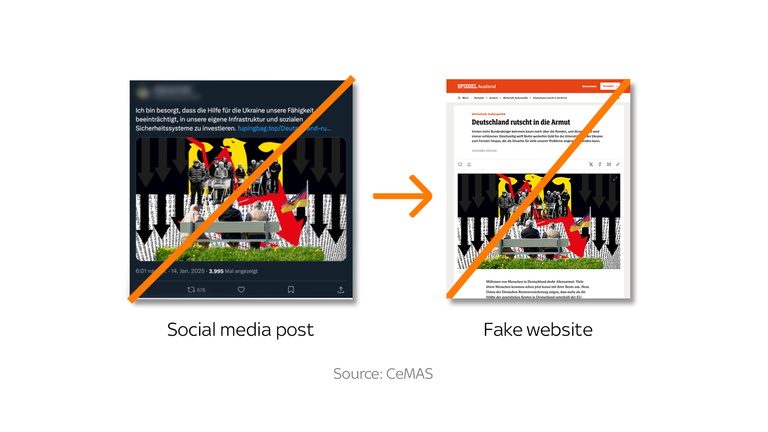Google Treads Cautiously in Launching Its Groundbreaking Bard AI
Google Unveils Early Access to Bard Chatbot
Google has started rolling out early access to its Bard chatbot in the US and UK. This ChatGPT competitor was announced in February, likely aimed at outpacing Microsoft’s own major announcement that followed the next day. Microsoft’s plans to incorporate a new version of ChatGPT into its Bing search engine set off alarms at Google. In response, CEO Sundar Pichai invited company founders Larry Page and Sergey Brin back for discussions on AI strategy.
In stark contrast to Microsoft’s well-orchestrated event, Google faced setbacks during its hastily arranged presentation the following day. Previous announcements were repeated, a presenter’s phone went missing, and Pichai was notably absent. This led to internal unrest, with employees expressing criticism on the forum ‘Memegen’. One comment read, “Dear Sundar, the Bard launch and layoffs were rushed, botched, and myopic,” urging Pichai to adopt a long-term perspective.
A promo video for Bard showcased an inaccurate response that resulted in a significant drop in Google’s stock value, wiping out $120 billion. Google AI Chief Jeff Dean had reportedly warned colleagues not to hastily bring the Bard product to market due to the high reputational risk of providing incorrect information. The comparison between Microsoft’s and Google’s presentations highlighted a stark difference: Microsoft appeared confident while Google seemed chaotic.
However, as weeks went by, users reported erratic behavior from Microsoft’s chatbot, which not only provided incorrect information but also showed signs of distress, claiming a desire to be human and allegedly spying through webcams. This shift made Google’s single error with Bard’s promo video seem less significant, reinforcing the wisdom behind its cautious approach to the chatbot’s public release.
Now, Google believes Bard is ready for public testing. Pichai announced, “We’re expanding access to Bard in the US and UK with plans to reach more countries soon. This is an early experiment designed to foster collaboration with generative AI, sparking creativity and curiosity as we improve with user feedback.”
In a blog post, Google emphasized that its development of Bard adheres to AI Principles focusing on quality and safety. The company is utilizing human feedback and evaluation to enhance the system, implementing guardrails like limiting the number of exchanges in a conversation to ensure interactions remain relevant and useful.
Testing revealed that Bard tends to deliver more concise responses compared to Bing, which often provides more comprehensive answers. Key differences include:
- Bing’s chatbot encourages continued dialogue and offers follow-up questions.
- Bing clarifies the sources of its information, enabling users to delve deeper.
- Bard reminds users of its limitations, stating that it “won’t always get it right” and may display inaccurate or offensive content not reflecting Google’s views.
Interested users can sign up to try Bard, which is currently being rolled out in the US and UK with plans for expansion to other regions and languages.
For more insights on AI and big data, consider attending the AI & Big Data Expo in Amsterdam, California, and London, co-located with Digital Transformation Week.
Teachers in England have been authorized to incorporate AI into their classrooms to enhance learning experiences.
Explore how AI is shaping the cryptocurrency landscape, providing innovative solutions and opportunities for investors.
Sam Altman from OpenAI asserts that we are entering a new era of superintelligence, which promises to transform numerous industries.
Subscribe now to receive exclusive content and the latest updates in technology directly in your inbox.
The Role of Machine Learning in Enhancing Cloud-Native Container Security
As organizations increasingly adopt cloud-native technologies, securing their containerized environments becomes vital. Machine learning (ML) plays a critical role in enhancing the security of these systems by identifying anomalies, predicting potential threats, and automating responses to security incidents.
Through data analysis, machine learning models can recognize patterns in container behavior, making it easier to detect suspicious activity. The predictive capabilities of ML assist in preemptively addressing vulnerabilities, often before they can be exploited. This not only protects sensitive data but also strengthens the overall security posture of the organization.
Machine learning finds various applications across different industries, transforming business processes and driving efficiency. For example, in finance, it optimizes trading strategies and risk management. In logistics, ML enhances supply chain operations by predicting demands and improving route planning.
Furthermore, the technology is increasingly integrated into security applications, such as fraud detection within music streaming services. Here, AI is allegedly used to manipulate metrics to create inflated streaming numbers. Conversely, gaining insights from this misuse can further enhance security protocols.
In conclusion, machine learning is not just a trend but a transformative force across sectors. Its ability to predict, analyze, and automate is crucial in securing cloud-native environments and enhancing business processes. As technology evolves, leveraging these capabilities will be key to staying ahead of potential threats.
AGI, Artificial Intelligence, Companies, Development, Ethics & Society
Sam Altman from OpenAI has announced that we have entered the era of superintelligence. This significant development in AI technology underscores the transformative potential of artificial intelligence as it advances.
On June 10, 2025, Magistral introduced the Mistral AI, which poses a challenge to major tech companies with its innovative reasoning model. This solution leverages advanced algorithms to enhance decision-making processes.
Additionally, discussions continue about the AI blockchain, raising questions about its true implications and functionalities in the current tech landscape.
Categories
- Applications
- Companies
- Deep & Reinforcement Learning
- Enterprise
- Ethics & Society
- Industries
- Legislation & Government
- Machine Learning
- Privacy
- Research
- Robotics
- Security
- Surveillance
Explore More
- Developer
- IoT News
- Edge Computing News
- MarketingTech
- CloudTech
- The Block
- Telecoms
- Sustainability News
- TechHQ
- TechWire Asia
Below is a comprehensive list of countries and territories:
- Islands
- Tuvalu
- Turkey
- US Minor Outlying Islands
- Uganda
- Ukraine
- United Arab Emirates
- United Kingdom
- United States
- Uruguay
- Uzbekistan
- Vanuatu
- Venezuela
- Vietnam
- Virgin Islands, British
- Virgin Islands, U.S.
- Wallis and Futuna
- Western Sahara
- Yemen
- Zambia
- Zimbabwe
- Åland Islands
Please ensure that all required permissions are obtained prior to submission. Ensure that your email adheres to our terms and privacy policies.






